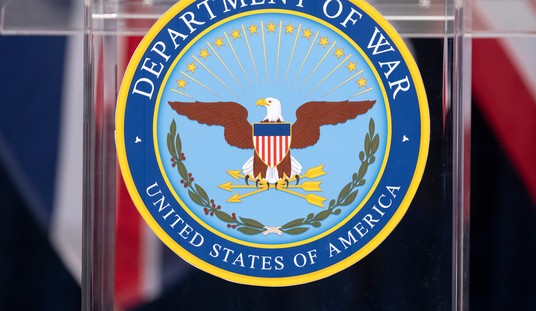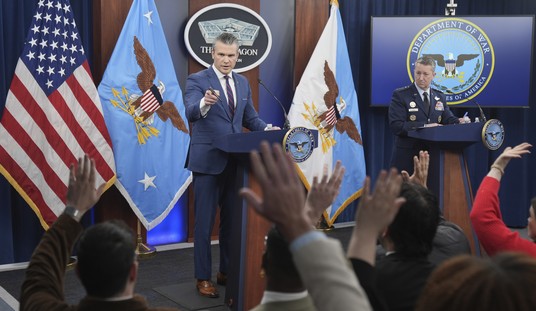As I laid out in Part 1 of this endeavor, one of the most disheartening aspects of the aftermath of Charlie Kirk's assassination has been watching people I care about draw conclusions that place us at odds based on bad information or manipulative framing. I've seen an inordinate amount of bad/misleading information shared — something social media makes it exponentially easier to do, like a giant game of Telephone, only not fun or entertaining.
Certainly, that's not unique to this tragedy. But this one, in particular, has really brought out the worst of it — and the worst of us.
In any event, I won't belabor the background explainer here. That can be found in Part 1:
READ MORE: Deconstructing the Narrative of the Left - Part 1: Fact vs. Opinion
As I set out to clinically and dispassionately separate the fact from opinion in the video I'd seen shared by several friends (and which has racked up millions of views), I vowed not to argue the opinions the account owner (Leigh McGowan) shared, other than to point out when they were being couched as facts. I did my level best. But...as I was composing that initial piece, I kept finding myself arguing back, and so I ultimately decided to lay out my argument/responses to her opinions separately here.
It's probably not fair to characterize this as a "debate." I'm responding to her, but she's not able to respond back in the manner of a typical debate. She put the video out two days after Charlie's murder; I'm finalizing this a week after that, with the benefit of added information. She's speaking through a five-minute video; I'm using a written response and can "show my work" to support my points. (Not that I get the impression she's all that interested in showing her work — more on that later.) Basically, this is just me engaging in a written rebuttal exercise and, in the process, highlighting the problems with the way we engage (or disengage) with those who hold different or opposing views.
I won't worry about the color-coding this time — and I've trimmed it down to the key arguments. The initial bullet points are McGowan's words; the sub-points are my responses/observations.
"After being told for two days that the Left had declared war on America, that the shooter was most likely trans — or, in Congresswoman Nancy Mace’s words, “pro tranny” — after the Wall Street Journal published an article they had to later walk back, that the bullets had a pro trans message because it turned out to be the just the markings of one of the world’s biggest ammunition factories, they were wrong."
“They were wrong” — well, no, they weren’t; they may have been premature, but the suppositions that Robinson was of the political left and pro-trans-ideology have now been affirmed via the charging docs. She didn’t have access to that information at the time of her vid, so I have to cut her some slack, BUT she’s knocking others for premature suppositions when she’s guilty of the same.
"I want you to take what happened to Charlie Kirk and imagine that as a six-year-old boy in class, or a 70-year-old grandmother at the grocery store, or a mother of four at Walmart. What is the difference? Is it that you saw it happen? That he felt like one of yours? That the event was so visceral and vicious that it shook you up?"
In response to her questions, I’ll say this: There is no difference in the tragic nature of each of those situations she’s suggesting. Innocent victims of violence are just that, and their value doesn’t vary based on their demography or geography. And why does she imply that Kirk is one of “ours” (who does she mean by “yours”?), but a six-year-old boy or grandmother or mother of four is not? They are all “ours.” Yes, this was different in that we all saw it happen. And yes, this was so visceral and vicious that it should shake anyone up. This was also a targeted killing aimed at a specific person or message, so it hits differently. I’m wondering why she’s likening that to mass shooting-type scenarios, while not referencing other targeted killings, like that of United Healthcare CEO Brian Thompson? Oh, and this was also different in that the victim wasn’t yet cold before he was being vilified, and in quite a few quarters, his death was being celebrated. We don’t typically vilify and celebrate the deaths of 6-year-old schoolboys, 70-year-old grandmothers, moms of four. But Charlie? He’s fair game, and how dare we be upset about it? /sarc
"I understand that, but then let’s take that as a lesson that this kind of violence should be unacceptable to our country, and we should be doing everything we can just stop it."
Okay, which kind of violence? Isn’t it already unacceptable (aside from for all of those who were celebrating it, I mean)? I guess she means violence involving guns. (Which, again, setting aside self-defense, I agree — unacceptable. As is violence involving knives, bombs, etc.)
“Without evidence”
“Without evidence” is a mixed bag. She’s right that it’s inappropriate to jump to conclusions about motive, etc., until there’s adequate information. On the other hand, you have a high-profile political figure who’s assassinated in broad daylight, there’s at least a reasonable inference that it was for his views and by someone who opposed them, so the thought process she's bemoaning isn’t outlandish. And what she’s driving at there at the end highlights the dichotomy: She’s focusing blame on the gun; the right (I guess? Whoever she’s criticizing here) is focusing blame on the shooter/his [presumed] motivation(s). I will add this observation: A gun without a shooter is…a gun; an inanimate object; it poses no threat by itself. A shooter without a gun is…a wannabe shooter; a person with ill intent; (s)he poses a threat with or without a gun if (s)he is intent on harm. Is the presumption (by the anti-gun folks) that, absent a gun, someone with ill intent will just ditch the ill intent and go on about their merry way?
"It should feel ludicrous to blame one half of the country for a single person’s actions."
Okay, but that works both ways, right? So...why again was she insinuating that the shooter was of the right?
"Not only that, but to demonize the political party who has done everything they can for decades to limit gun violence, the party who begged you to care about your fellow Americans being slaughtered at the movies or in churches or concerts or schools, but were met with nothing but thoughts and prayers and AR-15 lapel pins."
We’re in full-on opinion territory here — built on a flawed premise. This gets into the presumption that because someone doesn’t agree with your solutions, they don’t care about the problem. Which is fallacious reasoning — at best.
"How is it possible that the party of common-sense legislation and the Office of Gun Violence Prevention could be the party being blamed for someone getting shot?"
Will simply note that this framing all turns on the premise that it is first and foremost the gun to blame and not whatever motivates a given shooter. (In which case, again, pointing the finger at ideology to badmouth Kirk and his political allies then makes no sense.)
"So I refuse to sit here while the Democrats and left are painted as the party of war."
Okay. (Can I be snarky for a moment and point out that she is, in fact, sitting there while saying that?)
"It is the right wing who spent the past two days creating a false narrative, blaming an entire group of people for a violent execution with no evidence."
This is opinion/argument, presented as fact. And the narrative (that the shooter was of the left, not the right) is not false. It's accurate (even though many on the left — including McGowan herself — have been doing exactly what she’s accusing the right of doing). And again, the “with no evidence” is inaccurate. You can validly challenge the sufficiency of evidence at the time the accusations started flying, but you cannot correctly claim there was NO evidence.
"The right wing, who is using another American family’s tragedy with gun violence as an excuse to start a war they already wanted to start."
One could substitute “left” for “right” in that sentence and make an equally compelling argument. (It gets no one anywhere, but with much of her argument, she continues to do precisely that which she is complaining the right is doing.)
"So unlike everyone on the right who tried to capitalize on Kirk’s death to spin some narrative to their own benefit and everyone on the left who felt the need to lionize the man for free speech who did more damage with that speech in his lifetime than most people could ever dream of, I’m just gonna stick with the facts."
This is opinion, argument, and an attempt to couch same as “the facts.” This was the part where I REALLY wanted to throw a flag on the play — she just spent the better part of four minutes laying out opinion, argument, hyperbole, and supposition, with a few facts interspersed, and now claims, “I’m just gonna stick with the facts.” Sure, Jan.
— Susie Moore ⚾️🌻🐶 (@SmoosieQ) September 19, 2025
"We are fighting each other when we should be putting all of our attention on them — the people crashing our economy and taking our healthcare and bankrupting our farms."
This is a beaut: In one relatively short sentence, she exhorts us to stop fighting one another and then immediately points the blame at (presumably) Republicans.
"But so many people don’t even know that happened because their news and social media feeds were filled with a call to bring war and death to the Democrats."
Would simply note that the vast majority of Americans aren’t aware of the vote in question, as they aren’t aware of most votes, regardless of what their feeds are filled with. I agree with the premise that we’re too often distracted by the shiny object and miss important things. However, I don’t think she can rightly lay the passage of this motion to table at the feet of reaction to a horrific assassination (and there was all manner of reaction, not just what she describes). In other words, even had the assassination and its aftermath not happened, I don’t think this vote would have gone any differently.
"Sometimes things aren’t as complicated as they seem. Ask yourself who benefits from something, and then see who tries to capitalize on it."
This is opinion/argument, but it’s actually sound practice. So, I’ll ask this: Is she trying to capitalize on this situation?
"The Democrats didn’t do this terrible thing, but an entire political party and industry went into overdrive trying to make you think they did."
This, again, is opinion dressed up as fact. I think it’s fair for her to argue that an entire party shouldn’t be blamed for the act of an individual (though I recognize there are counter-arguments), but then she turns right back around and blames an entire party (the other one) for assigning blame, just as many on the left (including her) have done.
Some additional thoughts:
McGowan seems to be conflating disgust at the reaction (of the left) to Kirk’s death with blame for causing it. Yes, there has been the latter. But a lot of the blowback she’s decrying is in response to the seeming justification and even celebration of his death, and that’s getting mixed in with the separate issue of what motivated the assassin.
Toward the end of the video, McGowan bemoans the fact that we are being set against one another. This is one of the parts with which I actually agree somewhat. However, she lays that at the feet of others (cough “one party”) trafficking in lies and bad faith. Yet…she’s sharing information that’s verifiably untrue to make an argument for why “they” (Republicans/the right) are the bad guys. Perhaps she’s truly well-intentioned and just woefully misinformed.* Perhaps. I don’t know her. I don’t know her heart. But if so, she’s doing, with this commentary, the very same disservice she so decries. And if not, she’s dressing up spin in reason’s clothing and attempting to convince viewers her framing is the only reasonable way to look at the situation.
*An added note: I wrote the above paragraph at the outset of this exercise, just after watching the video for the first time. Even without what I'm about to add, I'm sure some would feel I was granting more benefit of the doubt than was warranted, and it's become evident that I was. I was asked by a reader, in response to Part 1, if McGowan has since corrected herself or acknowledged that some of her information was erroneous (now that we know quite a bit more about the alleged shooter), and I said I would check. I have checked, and the answer is not just "no," but a resounding "NO!" You see, McGowan has determined that the text message exchange between Tyler Robinson and his roommate/romantic partner included in the charging documents was fabricated by the FBI/DOJ.
Now, it's true: I still don't know her heart, though I'm fairly confident I won't be changing it with this or anything else I may have to say. But McGowan isn't who this is for anyway. I'll selfishly confess this is for me, more than anything, as I do my best to work through something that weighs very heavily on my own heart — and ironically, it's the one thing on which I found myself most agreeing with McGowan: that we are being intentionally distracted and divided as a nation and as a society.
So, I will end by thanking her for helping me to crystallize that realization and for inspiring my resolve to find a way to combat that.
Editor’s Note: Do you enjoy RedState’s conservative reporting that takes on the radical left and woke media? Support our work so that we can continue to bring you the truth.
Join RedState VIP and use the promo code FIGHT to get 60% off your VIP membership!















Join the conversation as a VIP Member